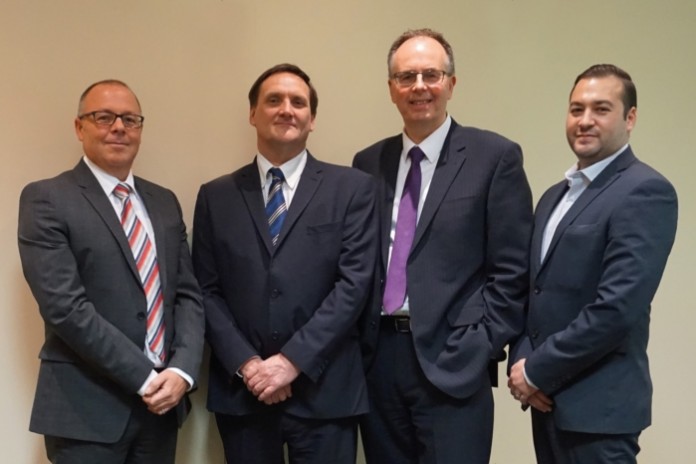A new partnership set up by four experienced consultants from the Midlands – Enterprise Workplace Partners or EWP – has been launched to help public and private sector organisations understand, improve and transform their corporate work environments.
Amongst the range of benefits offered to clients through their ‘frictionless workplace(TM)’ concept, are reduced business operating costs, cost effective business growth, better value property and facilities management services, greater sustainability, higher levels of workforce performance and collaboration levels, enhanced employee retention and recruitment, better workforce health and wellbeing and stronger in-house workplace management teams to maintain change beyond their initial engagement.
The difference in their approach is to cut-across traditional organisational boundaries bringing together property, people, technology and support service capabilities to maximise the impact of workplace change.
It sounds impressive, but how can they justify these claims? Well, individually the four partners all have impressive track records that demonstrate they have delivered these benefits on major projects in recent years. EWP founders and senior management team Ray Windless, Ian Hutchinson, Chris Bray and Luke Hurd draw on a wealth of practical experience and complementary skills in the delivery of workplace transformation services for major organisations.
Examples of the teams previous work include Birmingham City Council’s pioneering and successful Central Administration Buildings transformation programme. Outcomes included a c. 50% reduction in floor space, 30% reduction in property running costs, new levels of employee agility and collaboration, in total saving £100 million for the public purse whilst continuing to support a steady state workforce of 10,000 employees. A facilities management re-engineering project for a major London Borough Council which operated a large, geographically dispersed estate comprising around 3,000 properties from heritage buildings to modern offices resulted in a 30% reduction in resource costs, significant service productivity improvement and improved customer satisfaction. They have worked intimately with the CEO, with the Board and senior leadership team of a Local Authority owned regional design, construction and facilities management services company. Results included 100% compliance with core contract KPIs, a 10% core operating cost saving, 25% turnover rise by transitioning-in additional services, a 20-30% increase in customer value through the introduction, within record time, of a completely new and innovative building fabric repairs and maintenance service and secured new strategic capital project wins. On a wider note, they have built intuitive financial models capable of running multiple complex scenarios for the provision of banking software and services to the UK’s first digital-only bank. The outcomes included a multi-million-pound contract award for building, deploying and running the banking software for five years.
So, an impressive track record of high quality individuals and their specialist business partners, that you could have helping to address workplace challenges or radical change in the months and years ahead.
“Putting this partnership together didn’t happen overnight, but we were all keen to work together again with specially selected business partners in the fields of HR and technology alongside our property and services expertise, to create this attractive business improvement package. We see growing demand for this type of offer as the public sector continues to grapple with on-going spending reductions, private sector businesses compete for the latest talent, consider their location options in relation to Brexit and the impact of new technology which can all pose significant day to day and longer-term workplace challenges,” says Ray Windless. “Our aim is to help clients create a frictionless workplace and capitalise on the substantial potential savings, cost avoidance, workforce collaboration and sustainability benefits we’ve seen released through previous projects. However, clients typically tackle property, new ways of working, people, technology and support service changes in isolation, reinforced – certainly in the public sector – through traditional contracting arrangements for professional services or separate ‘misaligned’ internal organisational functions. We also subscribe to the view that emerging thinking and approaches to tackling the workplace in its wider sense should be given more prominence at the top table in business. The holistic approach to tackling workplace challenges advocated by EWP leads to better investment returns, faster benefit realisation, better equipped internal client teams to maintain focus on change and ultimately better business.”



















